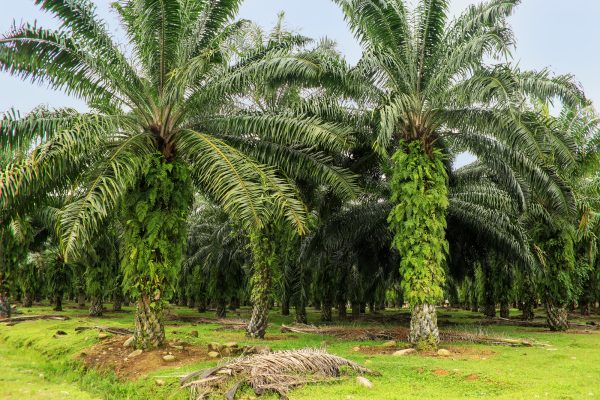Pacific Cash | Financial system | Southeast Asia
Joseph D’Cruz, the top of the Roundtable on Sustainable Palm Oil (RSPO), believes that Brussels’ new guidelines may have a “human, social and developmental value.”
A palm oil plantation in North Sumatra, Indonesia.
Credit score: Depositphotos
This week, Reuters information company conducted an interview with Joseph D’Cruz, the top of the Roundtable on Sustainable Palm Oil (RSPO), about new European rules that might severely limit the bloc’s imports of palm oil.
D’Cruz, the chief govt officer of the RSPO, stated {that a} new European Union regulation, handed in December, which requires firms to show that their provide chains aren’t contributing to deforestation, may sideline small farmers, and, by implication, result in additional consolidation of the worldwide palm oil business.
D’Cruz stated within the interview that palm oil producers who’re already licensed by the RSPO won’t discover it troublesome to adjust to the EU’s necessities, on condition that its certification course of is pretty rigorous and already prohibits deforestation and the conversion of major forests to plantations. Nevertheless, he warned that smaller producers in Asia, Africa and Latin America – even people who harvest palm oil sustainably – would discover it difficult to reveal that the attenuated provide chains of which they’re a component don’t contribute to deforestation.
“There’s a human, social, and developmental value there, which smaller, marginal producers could also be compelled to bear for the EU deforestation regulation to be carried out the way in which it’s being arrange proper now,” D’Cruz stated.
For many years, the worldwide palm oil business has been linked to an extended checklist of labor rights abuses in addition to “widespread rainforest destruction and wildlife loss” in Southeast Asia. The RSPO is a non-profit group that aims to transform the sector “by bringing collectively stakeholders throughout the provision chain to develop and implement world requirements for producing and sourcing licensed sustainable palm oil.”
Given its tight hyperlink to deforestation, palm oil is prone to come below specific scrutiny of the brand new European regulation, which can “be sure that a set of key items positioned on the EU market will not contribute to deforestation and forest degradation within the EU and elsewhere on this planet,” the European Fee stated in a statement following its passage. Along with palm oil, the regulation will even apply to cattle, soy, espresso, cocoa, timber, and rubber, in addition to varied different merchandise derived from these.
Greater than seven million smallholders globally domesticate palm oil for a dwelling, in keeping with RSPO information cited by Reuters. In Indonesia and Malaysia, the 2 prime producers of palm oil, smallholders account for about 40 % of the full space devoted to palm oil plantations.
The potential unfavourable redistributive affect of the regulation is one other instance of the unintended penalties of the EU’s values-based financial coverage, which seeks to leverage the bloc’s big financial weight to incentivize progressive change in overseas international locations. The proposed EU regulation, and its coverage towards palm oil extra usually, have already soured Brussels’ relations with Indonesia and Malaysia, proper at a time when the EU is searching for to bolster its “strategic engagement” with the Affiliation of Southeast Asian Nations (ASEAN).
The 2 nations had been so involved in regards to the new EU rule that they joined forces to foyer in opposition to it. Following its passage, a senior Malaysian commerce official recommended that his nation may stop palm oil exports to the EU completely. The EU’s financial weight undeniably provides it appreciable energy on the worldwide stage – however that weight is evidently a blunt instrument for bringing about change.


